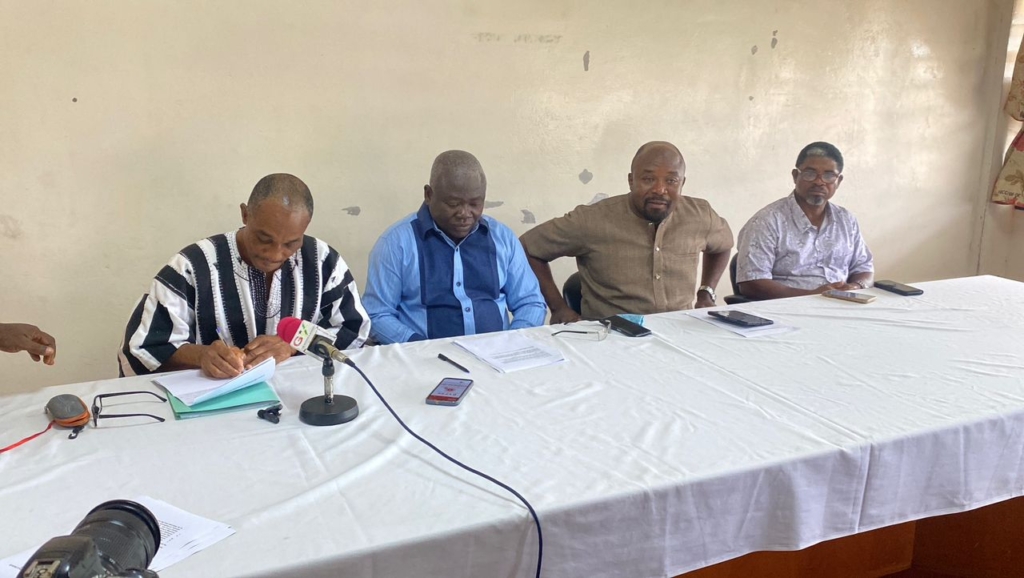
As Ghana intensifies its search for sustainable economic solutions, the Volta Region is boldly stepping forward with a strategic blueprint to revive and scale up the Kenaf industry—an ambitious agro-industrial initiative with the potential to transform local economies, generate millions in foreign exchange, and position Ghana as a hub for green manufacturing in West Africa.
This groundbreaking move follows a high-level mission to Kuala Lumpur, Malaysia, from May 25 to June 6, 2025, undertaken by a joint delegation of private sector stakeholders and officials from the Volta Regional Coordinating Council (VRCC).
The mission sought to understudy Malaysia’s globally acclaimed Kenaf value chain and lay the groundwork for replicating similar success in Ghana.
“We are not just talking about farming. We are talking about a green industrial revolution—creating jobs, building factories, and exporting sustainable products to global markets,” said Mr. George Sika, Project Coordinator of the Kenaf initiative.
Kenaf, often called the “miracle crop,” is a fast-growing plant that matures within 3 to 4 months and is capable of producing over 31 industrial products. These include edible oils, animal feed, biodegradable packaging, jute sacks, paper, car dashboards, airplane panels, absorbents, and eco-friendly construction materials.
What makes Kenaf even more attractive is its compatibility with Ghana’s climate and its high economic yield. A 1,000-hectare plantation, for instance, is projected to generate $200 million in annual revenue and create over 1,500 jobs across cultivation and processing.
“Kenaf gives us a rare chance to grow an agro-based industry from seed to shelf, right here in the Volta Region,” Mr. Sika added.
The mission to Malaysia resulted in several strategic breakthroughs:
Government-to-Government Commitment: The Malaysian Ministry of Commodities and Plantations pledged technical and institutional support for Ghana’s Kenaf development, including the implementation of the 1,000-hectare industrial model.
Appointment of a Technical Envoy: A renowned Malaysian researcher—credited with developing Kenaf-based components for cars and aircraft—has been appointed as a special “Kenaf Ambassador to Ghana” to provide technical leadership.
Seed Transfer and Legal Frameworks: Ghana has received advanced Malaysian Kenaf seeds for local trials. A Memorandum of Understanding (MoU) and Non-Disclosure Agreement (NDA) have been signed to govern the collaboration.
Technical Visit Scheduled: The Malaysian technical team is scheduled to visit Ghana in August 2025 to conduct an appraisal and initiate pilot projects.
To ensure a smooth takeoff, over 5,000 hectares of land have been secured and prepared across the Volta Region for initial planting and seed multiplication. A Project Coordinating Unit (PCU) and a management board are being established to drive the implementation of the initiative.
Meanwhile, the formation of a dedicated entity, Volta Kenaf Development Company, is underway to anchor public-private partnerships and investments in the industry.
“This is not just another farming project. This is agro-industrialization in motion,” said Mr. Sika.
While embracing the industrial promise of Kenaf, Volta’s agricultural leadership is also safeguarding the region’s reputation as a food security stronghold. The region contributes about 23 per cent of Ghana’s total rice production and intends to retain this standing.
“Yes, Kenaf is a game-changer. But we are not sacrificing food production,” said Mr. William Dzamefe, Volta Regional Director of Agriculture.
“Our farmers are already successfully rotating Kenaf with rice, allowing the same land to deliver both food and industrial crops year-round.”
This strategy supports food security and national grain reserves, expanded foreign exchange earnings through Kenaf-based exports and efficient land use and increased farmer incomes
“It’s a win-win. After harvesting rice, we plant Kenaf. Then we return to rice. The land remains productive and our people benefit both ways,” Dzamefe noted.
The revival of the Kenaf industry marks a pivotal moment in Ghana’s economic transformation journey—one that combines agro-based industrialization with inclusive job creation, sustainable development, and export-led growth.
The VRCC is inviting businesses, investors, and entrepreneurs to come onboard and take advantage of the many opportunities within the Kenaf value chain.
“We are creating a legacy of prosperity, green jobs, and industrial excellence. Join us,” Mr. Sika urged.
DISCLAIMER: The Views, Comments, Opinions, Contributions and Statements made by Readers and Contributors on this platform do not necessarily represent the views or policy of Multimedia Group Limited.
DISCLAIMER: The Views, Comments, Opinions, Contributions and Statements made by Readers and Contributors on this platform do not necessarily represent the views or policy of Multimedia Group Limited.


